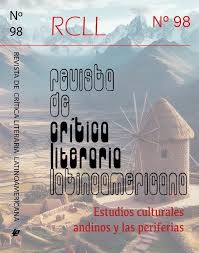Cine regional peruano y soberanía audiovisual: alturas y profundidades en las nuevas miradas desde y sobre los Andes
Keywords:
Andean regional cinema, audiovisual sovereignty, Andean pluriverse, relationship of care and motherhoodAbstract
This article examines two recent audiovisual productions, Wiñaypacha (2017) by Oscar Catacora (1987-2021), and Pachamama (2020) by Marcelo Farfán Ávalos, which offer views from and about the Andes from two foundational regions of Andean identity, such as Puno and Cusco, respectively. The article explores common aspects in the construction of these imaginaries, like the melodramatic elements deployed in the context of Peruvian identity, one that remains conflicted between national and regional discourses of mestizaje and cultural diversity. I argue that both productions enhance the melodramatic to reach both regional and national audiences to address the Peruvian social division in questions of identity. Both directors also resort to the archetypal to represent the complexity of the Andean pluriverse and the complementary, rebellious and/or violent relationship between human and non-human beings who live above and below the Andes. Likewise, both projects offer important keys in the search for an audiovisual sovereignty that emphasizes the care of the human and non-human as interrelated and indivisible processes, especially through motherhood as a human and more-than-human relationship.





